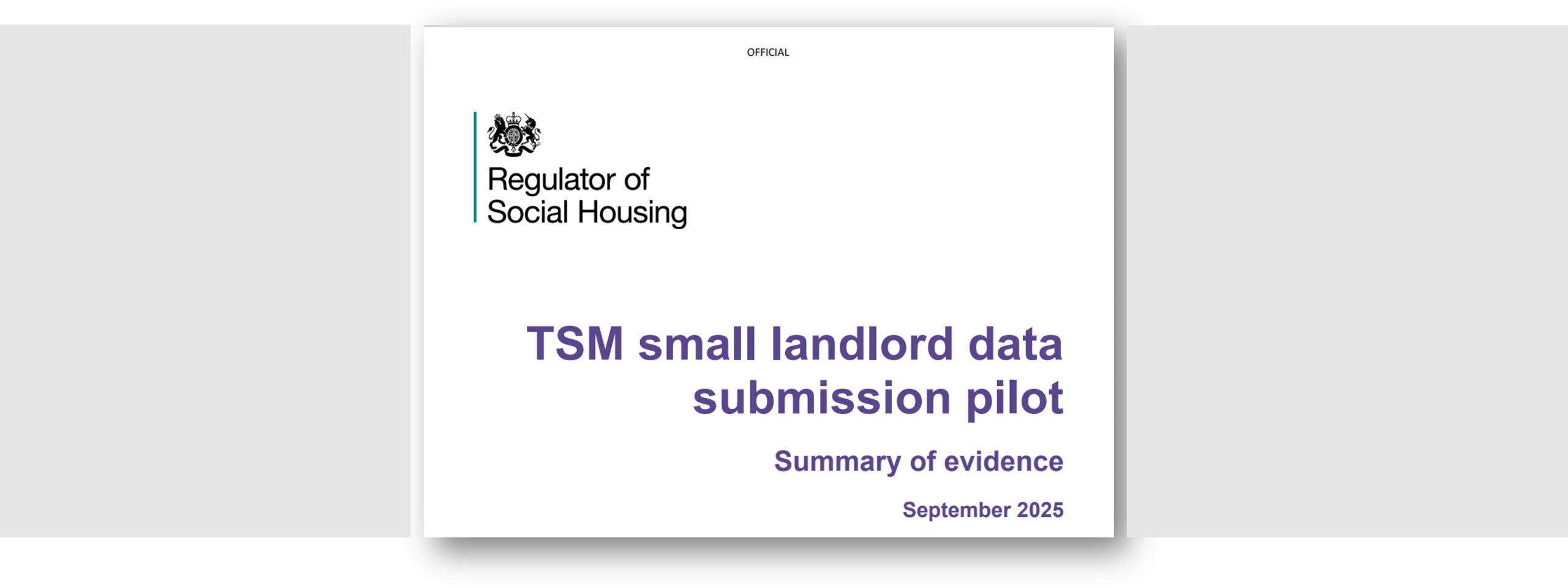
What the Regulator of Social Housing’s TSM Pilot Says About Almshouses [and the Charitable Housing Sector]
Earlier this month, the Regulator of Social Housing (RSH) published the findings from its pilot study involving small providers submitting Tenant Satisfaction Measures (TSMs). Whilst almshouses were among the participating organisations, the results have broader implications for how the sector can approach resident feedback, performance monitoring and reporting in smaller settings.
The pilot was voluntary and included a diverse mix of small social housing providers – local authorities, supported housing specialists, for-profit providers, and almshouses. Its goal was to explore how small providers collected TSMs, how feasible it was for them to submit data to RSH and whether there would be benefit (or burden) in requiring them to do so.
While the result of the pilot confirmed the current RSH outlook on TSMs – that small providers will not be required to submit TSM data directly to the Regulator – there are some important messages for almshouses to take away.
- Firstly, small scale matters. The data from TSMs indirectly show that residents of smaller charities report stronger relationships and higher levels of satisfaction with their landlord compared to larger organisations. This underlines the value of the personal, community-based model of housing that almshouses have been delivering for centuries.
- Secondly, the almshouse model is different. Despite the Government’s drive to see all small charities as Registered Housing Providers and operating more like Housing Associations, the Regulator itself acknowledges that its framework was built with large scale providers of over 1,000 units. Many almshouses have less than 20 units, and the TSMs pilot acknowledges the burden this places on smaller providers.
- Thirdly, the Regulator is generally reassured with the standards held by smaller providers. The pilot shows that most small providers – including many almshouses – are doing a good job. With resident satisfaction consistently high, the Regulator has signalled that smaller organisations are not their top priority for intervention.
The message is clear – small housing charities are fulfilling their role effectively, keeping residents at the centre of what they do.
What this means for almshouse charities
- The outcome confirms that small providers are not required to make formal TSM returns, therefore, most almshouse charities (unless they are Registered Providers and have over 1,000 units) do not need to submit TSM data to the Regulator.
- Note, however, that regardless of size, almshouse charities that are Registered Providers are required to continue to collect TSM data and ensure the data is accurate, transparent and usable to demonstrate performance to tenants (residents) and improve services.
posted 6 October 2025